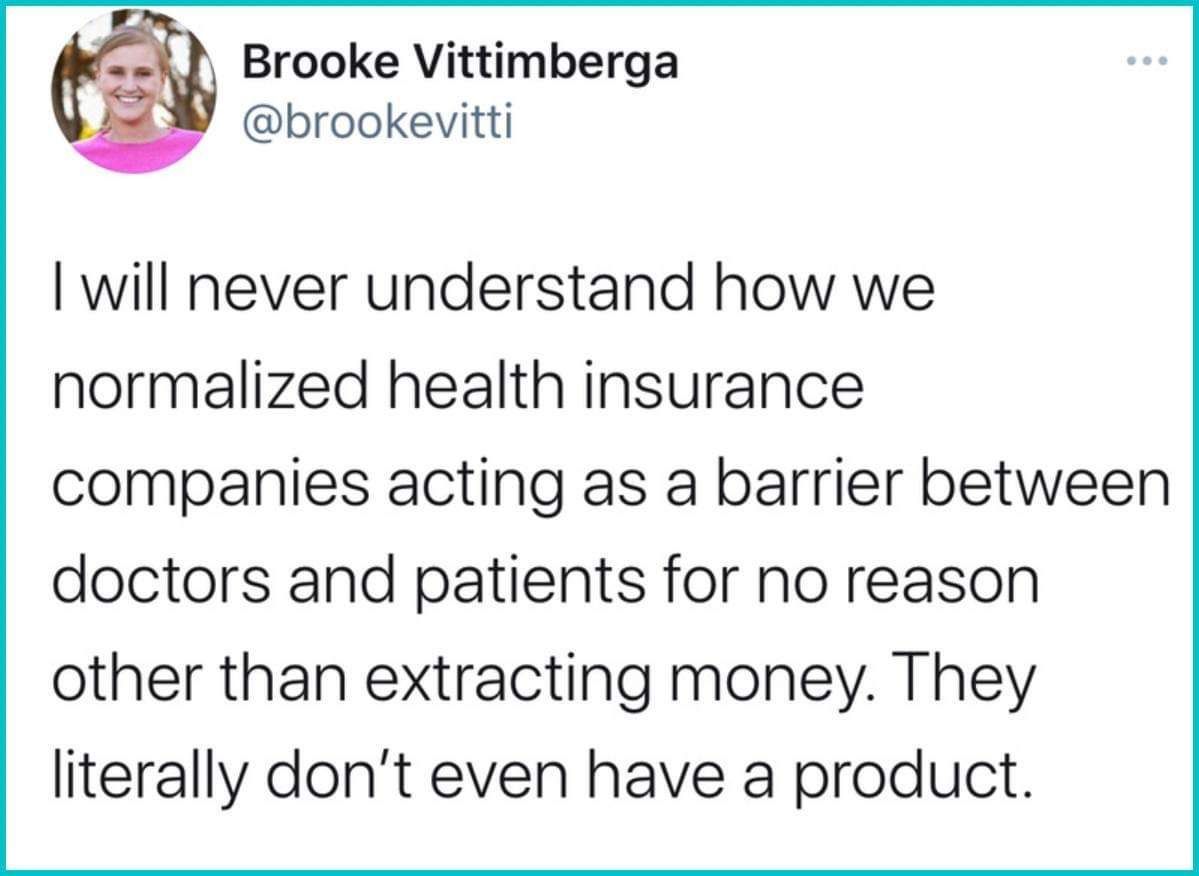this post was submitted on 10 Sep 2024
1778 points (97.6% liked)
Microblog Memes
5872 readers
2841 users here now
A place to share screenshots of Microblog posts, whether from Mastodon, tumblr, ~~Twitter~~ X, KBin, Threads or elsewhere.
Created as an evolution of White People Twitter and other tweet-capture subreddits.
Rules:
- Please put at least one word relevant to the post in the post title.
- Be nice.
- No advertising, brand promotion or guerilla marketing.
- Posters are encouraged to link to the toot or tweet etc in the description of posts.
Related communities:
founded 1 year ago
MODERATORS
you are viewing a single comment's thread
view the rest of the comments
view the rest of the comments

Insurance is generally for contingencies that are very rare but ruinously expensive. The average cost per person is low, but the cost to the one it happens to is extreme, like a reverse lottery. So it makes sense for a large group of people to pay a little bit of money each month, to pay for the cost to the one. This is how both health and fire insurance work. (Health care is about more than that but that's a different and less straight-forward story.) So, anyway, that's why sane people view it that way.
Historically, the problem with private firefighters was that you had a business that made money when there were major fires. That's a bad incentive. You get similar bad incentives in health care, too, which is one reason why coverage for some interventions may be denied. Another thing about fires is that they are contagious. They threaten the entire neighborhood. That's why you have, for example, the CDC in the US. Controlling contagious diseases is not left to private providers.
But, by the nature of the US, it still has to involve them. Because of the system, you can't get shots into people's arms without involving private hospitals, private insurance companies, etc. Which, during the pandemic resulted in some insurance companies still trying to charge co-pays for vaccinations, or billing people who received them. Maybe it was just paperwork mix-ups but it happened. And, since many people are used to the private system, they assumed that they would get charged or couldn't get vaccinated because they lacked insurance, so they didn't get vaccinated.
Imagine if a city had all kinds of private fire departments but it had a Center for Major Fires that could issue orders if a fire was declared to be "major". Until that point, firefighters could refuse to put out a fire at a business that hadn't subscribed to their firefighting services. So, they could sit there and watch a building burn down, only using their hoses on the stray embers that flew into houses nearby which had subscribed. Then, one day, there's a fire at an abandoned warehouse (no fire coverage, naturally) and it starts spreading to nearby buildings, some of which are also abandoned. The Center for Major Fires examines the situation and declares that this is a Major Fire, and that all the fire companies need to help put it out, regardless of whether it affects their pre-paid customers. But, unfortunately communicating that with the various fire companies is hard because the fire has already started to spread. Some companies are willing to do what's required, but first they want to ensure that their paid-up customers are safe, then they'll get to the abandoned warehouses... Other fire companies are hard to contact because they're already too busy fighting part of this Major Fire, so any hope of a coordinated response is slim.
There are just some jobs that should be done by government. Firefighting and healthcare are both in that category.